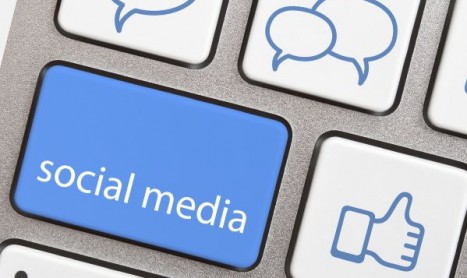The current focus on social media has many leaders wondering about its impact for their careers and businesses, they are asking:
1. Is this a structural change, or just a fad?
2. Does it impact the whole economy or just particular industries?
3. Does it apply across a business or just to sales?
4. Is it the right time to invest in platforms?
5. What’s it worth?
6. How, if at all, does social media contribute to productivity and the bottom line?
Let me paint the picture.
How connected are we?
The number of people online has doubled since 2007. There are 2.55 billion people online and 91% of those use social or mobile networks.
That’s an awe-inspiring number, but it’s just the start of a steep trajectory.
More than half of the world has yet to come onboard and they are doing so now, to the tune of eight new users a second.
Just as you’ve never lived in a world without cars and think of the horse-and-cart as quaint, so billions have never lived without hyper-connection. Would you tether a horse to a cart? Take it to a meeting across town? Could you even do so if you wanted to? No I imagine. So why do we expect others will want to connect with us on antiquated systems?
There are also more devices connected to the web than there are people on earth using more kinds of devices than ever before. We are using smartphones, tablets, laptops, wearable technologies and that’s before we get started on the emerging “internet of things” that connects everything to everything else and everyone to it.
The EMC Digital Universe study shows already 200 billion things are connected to the internet, 14 billion of which are connected to each other. Within a few years there will be 32 billion connected devices.
And we’re doing all of this connection on the run.
Mobile has freed us from desktops and hardlines and we read, think, react, reach out, share, and shop when we want and wherever we are.
If the latest 164 slide Mary Meeker Internet Report could be summarised in a word for leaders it would have to be ‘mobile’. Mobile gets more attention than radio and print combined.
Like it or not all this on-the-run interconnectivity has created a new paradigm – immediacy. The impact is already dramatic but like the number of users and the degree of interconnection, it will grow.
We no longer go to a company’s website to read about their product. There are 1.75 billion pages on the internet. If we know the name of a company and it’s URL (web address) and could be bothered to go straight there then they’d be a pretty important brand to us in the first place. But we’d still head online to compare their prices to someone else and read recent reviews. Or more to the point, as social networking overtakes search, just as a friend on Twitter or LinkedIn or Facebook.
People talk about brands and purchases all the time. And we trust those recommendations.
Personal recommendations have always been important, that’s not new. We’re far more likely to trust the opinion of someone we know than an anonymous head of marketing. But what makes those recommendations important is that in other areas, trust is on the decline.
If you look at the Edelman Trust Barometer there’s a clear trend – we don’t trust journalists, politicians, or CEOs and over time, we have come to trust them less. Although the findings vary, the essence is that we don’t trust companies to tell us the truth either.
Was this always the case? Possibly, but couple that with the fact that openness has taken away the need for gatekeepers and it’s clear that the days where you could declare from a position of authority that something was so, because you said so, are gone.
So who do we trust?
The answer is friends. I am far more likely to go to a café because someone whose opinion I value went there and thought the coffee was good, than because the café advertises itself in that way. The interesting thing about trust is that it makes no difference whether the relationship is in a physical or a virtual network. We treat them the same.
The billions of conversations that go on every day in social media networks matter hugely. They influence choices. And the emergence of comparison pricing and rating sites only further entrenches their value. 72% of consumers trust online reviews as much as personal recommendations.
To influence those conversations you have to be in them. While a globally connected world offers choice it’s also overwhelming and people still only have 24 hours in a day. If you’re where your customers are, listening and responding to their needs, then you’ve created the basis for relationship. Which is what business is about.
About the author
DIONNE LEW
The Social Executive® Dionne Lew is a professional author, speaker and social media consultant. She is the author of The Social Executive – how to master social media and why it’s good for business (Wiley) and writes for Forbes, Smart Company, Salesforce and Firebrand. She’s rated in the top 1% for global community influence by Kred.
Latest.

Hiring in Australia: 5 trends redefining our job market
Hiring Insights, Industry Trends, Ask Aquent, Leadership

How to avoid creative burnout and refill your creative tank (before you really need to)
Thought Leadership

AI adoption failing isn’t the tech, it’s the people. How smart businesses overcome this.
Technology, Thought Leadership, Industry Trends




